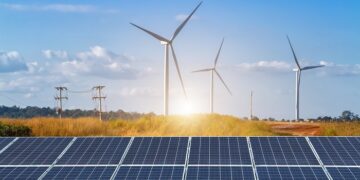Energy Sector Poses Significant Fiscal Risk with $2.1bn Legacy Debt
The International Monetary Fund (IMF) has identified Ghana’s energy sector as a significant source of fiscal risk, citing a legacy debt of $2.1 billion, equivalent to 2.8% of the country’s Gross Domestic Product (GDP) as of December 2023.
The legacy debt includes liabilities to Independent Power Producers (IPPs) and private fuel suppliers, according to the IMF’s Third Review under the Economic Credit Facility (ECF) programme.
Beyond the legacy debt, the IMF highlighted the sector’s persistent annual deficits, stemming from its inability to fully recover the costs of energy generation and distribution.
These deficits, referred to as “energy sector shortfalls,” are attributed to weak governance, system inefficiencies, revenue collection challenges, and tariffs set below cost-recovery levels.
Reform Efforts Under the IMF Programme
The IMF-supported programme has been working to address these structural challenges through the Energy Sector Recovery Programme (ESRP). Key reforms under the ESRP include:
- Arrears management: Preventing further debt accumulation and clearing legacy arrears.
- Periodic tariff reviews: Ensuring tariffs align with the real cost of energy, considering factors like inflation, exchange rate volatility, and fuel prices.
- Cost reduction measures: Renegotiating Power Purchase Agreements (PPAs) with IPPs, adopting cost-efficient fuel procurement strategies, and increasing gas utilization.
- Enhanced payment mechanisms: Establishing a national gas clearing house and implementing a cash waterfall mechanism to streamline payments.
Additionally, the programme aims to secure budget allocations to cover energy sector deficits and facilitate the gradual repayment of legacy debt.
Shortfall Exceeds Expectations in 2024
Despite these reforms, the IMF projects that the energy sector shortfall will exceed programme targets in 2024, placing additional strain on Ghana’s public finances.
The shortfall is expected to be 0.6 percentage points higher than previously anticipated, bringing the total shortfall to 2.2% of GDP for the year.
The IMF emphasized the need for stronger measures to stabilize the sector and mitigate fiscal pressures. Without substantial progress, the energy sector’s financial imbalances risk undermining Ghana’s broader economic recovery efforts under the ECF programme.
The ESRP’s success, coupled with continued government commitment, will be critical in ensuring the sector’s financial sustainability and reducing its burden on the economy.








